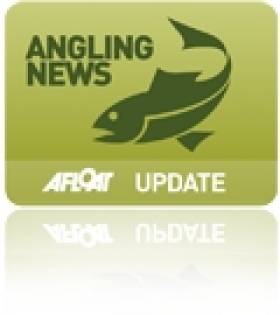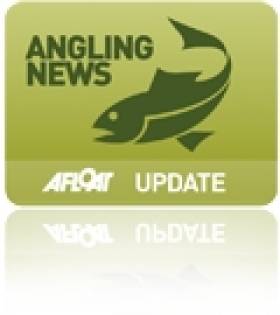Displaying items by tag: entry fee
Third Annual Pike World Cup Set for Lough Ree This April
#ANGLING - The Third International Pike Competition and Pike World Cup Boat Angling Tournament is set to take place on Lough Ree in Co Westmeath from 18-20 April 2012.
While the first event in 2010 attracted 55 anglers, that number more than doubled to 120 in 2012, and many more are expected to take part this year to boost the prize fund to €21,000.
As The Irish Times reports, top prize of €3,000 is guaranteed to the angler with the biggest pike.
This year's entry fee will also be reduced to €100 per angler for all three days or €40 per day. Fees will be returned in prize money with daily and overall prizes.
“We have made changes, especially when it comes to handling and photographing fish,” said organiser Dave Haughton.
For more details about the event and how to take part, contact [email protected].
Dates Announced for Coarse Fishing Qualifiers in 2012
#ANGLING - Qualifiers to select teams for the 2013 World, European and Celtic Cup coarse fishing teams will be fished over six weekends in 2012.
The float and feeder teams for the National Coarse Fishing Federation of Ireland (NCFFI) squads will be decided via an All Ireland Qualifier format to CIPS rules.
Team manager Mark Theedom will select his teams from the top 20 anglers in the float qualifiers and the top 50% of anglers taking part in the feeder qualifiers.
The series will be open to all anglers who are members of NCFFI-affiliated clubs, and is intended to be more inclusive and encourage many more anglers to participate.
All senior anglers will pay an entry fee of €60 for the six-match series which will help fund teams travelling to the 2013 championships. Individual anglers not intending to fish the series but wishing to fish individual qualifiers in their local area will be charged €15. Juniors will not be expected to pay any entry fee.
The qualifier weekends are as follows:
- 21-22 April – River Barrow, Co Carlow
- 19-20 May – Inniscarra, Co Cork
- 2-3 June – River Shannon (O’Brien’s Bridge), Co Clare
- 11-12 August – Lough Muckno, Co Monaghan
- 22-23 September - Lough Oughter, Co Cavan
- 20-21 October – Lower River Bann, Co Antrim

























































